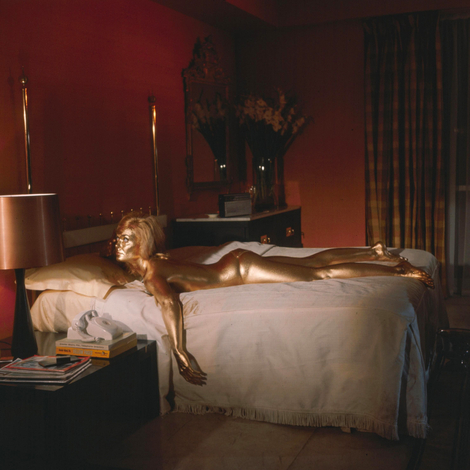On Tuesday, Sally Rooney will publish her fourth novel, Intermezzo, with Farrar, Straus and Giroux. Each Rooney novel since her 2017 debut, Conversations with Friends, has caused a frenzy in the literary world. Normal People (2018) put her on the literary and pop-culture maps, selling more than a million copies and spawning the TV series that made stars out of Daisy Edgar-Jones and Paul Mescal. (“I don’t want to be the center of attention like that ever again,” she told The Guardian in a recent interview.)
Most recently, the discussion over Beautiful World, Where Are You (2021) focused overwhelmingly on promotional merch. There was a tote bag, an umbrella, and a lemon-yellow bucket hat, all of which became status items. The latter drove people particularly crazy. Some coveted it; others mocked it; most posted about it on social media. Rooney’s writing itself got sidelined.
There is always something sidelining Rooney’s writing—her age, her gender, her Irishness, the marketing around her novels. But with Intermezzo, the author, 33, has written her most ambitious book yet, with a notable change in style. The story of two brothers navigating personal relationships after the death of their father, it contains long, unbroken sections of interiority. Though it circles Rooney’s familiar themes—sex and romance, female illness, former whiz kids facing adult irrelevance—the work is deeper and more tender.
As one of New York’s leading literary scouting companies put it in the report it circulated to clients about the book, it “feels more mature and ambitious than her work to date, both in terms of structure and narrative,” adding that Rooney “has really stepped up as a novelist.” According to the same scouting firm, the book has not been optioned for film or TV so far, and Rooney seems reluctant to have it adapted, though she hasn’t ruled it out completely.
Rooney’s editor, F.S.G. president and publisher Mitzi Angel, told me, “She’s tracking people’s thoughts on the move in this novel in a way that she hadn’t quite done before. So you will have noticed a stylistic shift or a new register for some of the novel that’s been really extraordinary.” Angel said she didn’t necessarily know what caused the shift. “I think she’s endlessly curious, and she’s very engaged with the kind of ethical, political, moral questions of our time… I think she’s also obviously a reader, and no doubt what she reads influences what she writes as well, and provides her with a sense of possibility and new directions.”
In an effort to get everyone talking about what I think is important (not hats), I tracked down writers, editors, and booksellers who received advance galleys and asked for their thoughts on the new book by the world’s most talked-about young novelist. (Rooney declined to comment for this story.)
“She’s tracking people’s thoughts on the move in this novel in a way that she hadn’t quite done before.”
The first thing I should note is that galleys were hard to come by this time. At least that’s what a lot of people told me. Advance review copies were numbered and inscribed with the receiver’s name to discourage resale (the first time I have seen this in almost 10 years of writing about publishing). One critic I spoke to lamented that his copy had been lost in the mail and would turn up on the secondhand market with his name in it. A common refrain from people who didn’t get one was “I guess I’m not cool enough.”
Also, many writers I asked could not comment, because they were writing about Sally Rooney, editing a review of Sally Rooney’s book, or otherwise participating in the Sally Rooney–industrial complex.
Of the people I spoke to, most either loved or hated the book. The writer Sarah Hagi called it Rooney’s best novel so far. The literary critic and essayist B. D. McClay said, “It’s really excellent. Maybe her best? … I think you could call it a ‘big swing’ in the sense that, like … Mansfield Park is a big swing after Pride and Prejudice.”
Rachel Connolly, author of the novel Lazy City, agreed that the book is a step up stylistically. “I can see it getting some bad reviews,” she said, but only “because there is such an emphasis on clarity and simplicity in prose right now and this is more stylish.”
Marianela D’Aprile, a contributing editor at Bomb magazine, thought it was “a step forward insofar as it starts from where the last one ends, with her idea of romantic love as a kind of refuge from life, from trouble, from reality, from all the forces that bear down on people.” Still, she noted that it avoids other tensions to focus on love affairs, which is either indicative of the characters’ avoidance or a symptom of a narration that always puts romance first.
“I think you could call it a ‘big swing’ in the sense that, like … Mansfield Park is a big swing after Pride and Prejudice.”
Others were skeptical that any change had occurred; there was a large “more of the same” contingent. Samantha Leach, associate director of special projects at Bustle and Nylon, said, “I understand that she has to work within the confines of the Sally Rooney genre she’s created for herself, which is romance and complications and miscommunication and all of these things.... But to me … it didn’t move the needle forward.”
Alana Pockros, the engagement editor at The Nation and an editor at Cleveland Review of Books, said, “It was a risk, I suppose, for her to focus on the familial drama and male P.O.V.’s, I guess, but I just feel like it’s ultimately her same shtick.” (She added on further reflection that the book is better than Rooney’s last.) Likewise, Leah Abrams, a writer and the host of the literary reading series and podcast Limousine, called it “another Rooney book where quiet, nobly suffering women are cured by magical dick.”
I found only a few people who were on the fence about the novel. Christine Pardue, the events manager at Rizzoli Bookstore, in Manhattan, said, “I don’t know if it’s a step forward.... but it definitely feels like a step toward upmarket romance.” Camille Jacobson, the engagement editor at The Paris Review, noted, “It felt very different from her others.”
“Another Rooney book where quiet, nobly suffering women are cured by magical dick.”
Artistic growth is a tricky thing to pull off for a novelist under such intense scrutiny. Maris Kreizman, critic and author of I Want to Burn This Place Down, spoke to this: “There is no middle class anymore. There are no midlist authors. It really seems like you either succeed wildly or you fail, and for most writers, you fail, and that’s awful, but Sally Rooney has it on the other end.”
And so we embark on another Rooney cycle. Bookstores including New York’s Greenlight and Book Culture are hosting midnight-release parties. One of McNally Jackson’s locations is having a launch event where the author herself will not be present. Sam MacLaughlin, co-owner and manager of McNally Jackson in Williamsburg, said that it’s “exceedingly rare that we ever do that.” It all recalls two previous publishing phenomena: Harry Potter and Twilight.
One hopes that this time the focus will be on the work. “I sometimes feel that it’s easy to forget,” says Angel, “just because she’s very popular, that she’s a genius.”
Erin Somers is the author of the novels Stay Up with Hugo Best and Ten Year Affair (forthcoming from Simon & Schuster). Her writing has appeared in The New York Times, The Nation, Esquire, the New Republic, and elsewhere

